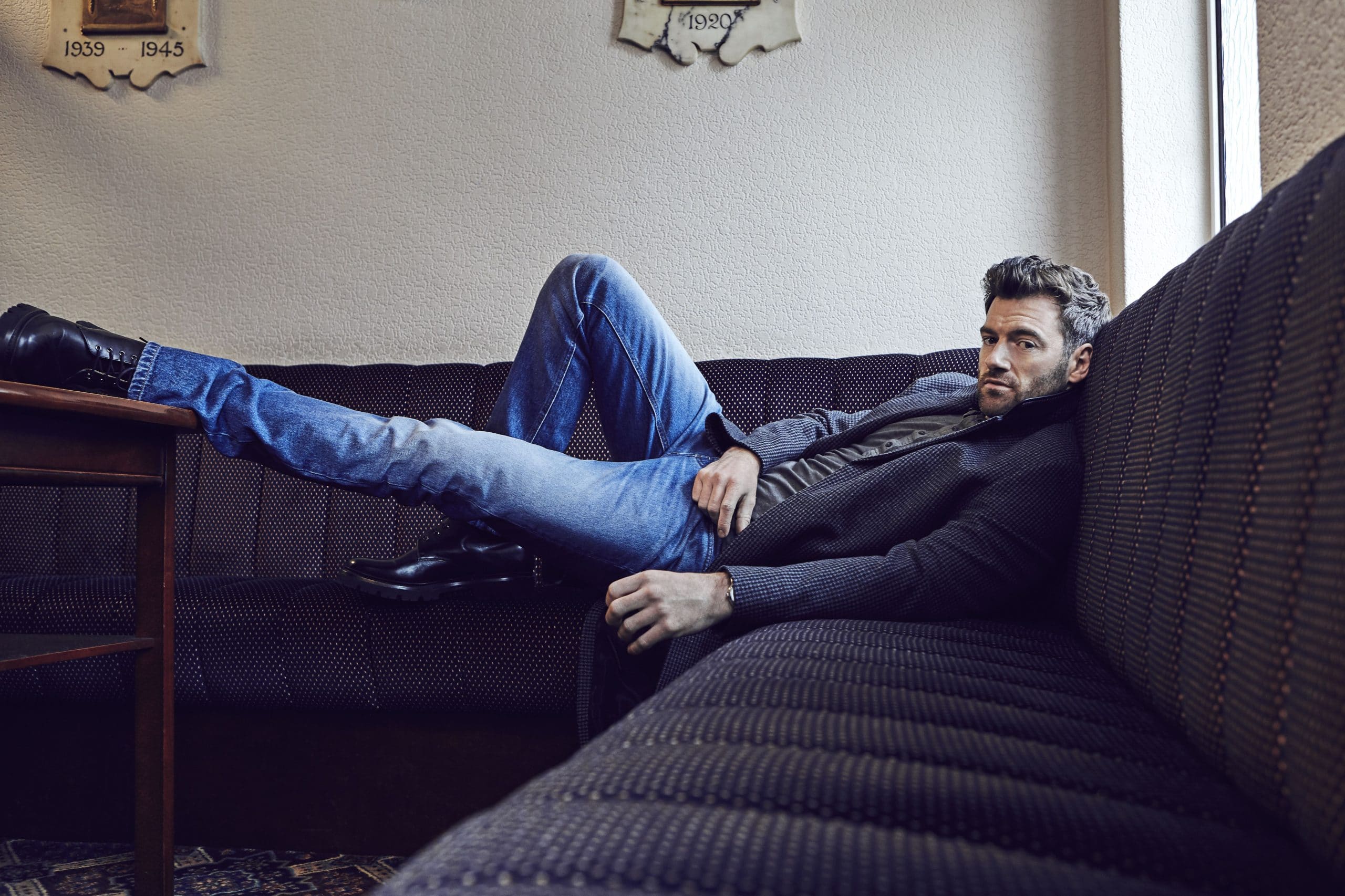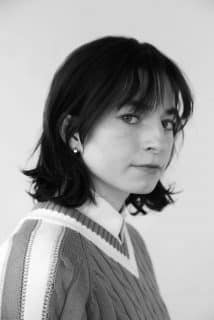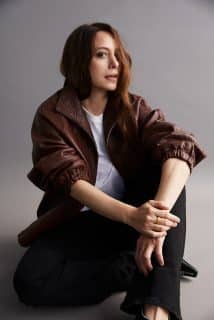Stuart Martin on Miss Scarlet and the Duke
Culture
The Scot tells us about the Victorian-set drama which should be your new go-to for lock-down thrills.
Stuart Martin has hit TV gold with Jamestown and of course Medici opposite Richard Madden and Dustin Hoffman, but his new one may well top them both. Miss Scarlet and The Duke (on Alibi from this week) is a cracking crime drama set in Victorian London about the first female detective (Kate Philips from The Crown and Peaky Blinders) and her policeman associate, the Duke (played by Martin). It ticks all the right boxes for Victorian intrigue with a particularly stylish verve, and a crackling script by Grantchester’s Rachael New. We spoke to Stuart while in coronavirus lockdown to find out more about the series and what it’s like to work with Kevin Costner and Dustin Hoffman.
How is the lock down affecting your work?
It’s a funny one. We are due to do a second series of Miss Scarlet and The Duke in September in Dublin and I thought that’d be fine but now you think, ‘what are we doing to do?’ If there’s going to be tests to see who’s had it and is immune that’ll help but its whether the government have that in time.
You can do audition tapes in isolation but you feel guilty sneaking off in the middle of the day when you have children. And it’s quite hard to see how those things are going to go so its difficult to motivate yourself. You’re distracted by the bigger issue which is the world right now.
The good thing is everyone is watching a lot of telly…
Yeah can you imagine if this happened ten years ago? Or if it happened when we were young, when you had 4 or 5 channels, no internet, no mobile phones, we’d be fucked. Now we have all these TV channels, and can communicate with people, and have Twitter for the laughs and Instagram poems. Have you seen any of the Instagram poems? Don’t.
Did you not get asked to be in the ‘Imagine’ video?
No, I’m not quite in that league unfortunately. I watched the first ten seconds and wanted to tear my own eyes out, but I had to keep watching.
Tell us about Miss Scarlet and The Duke, when did you film it?
In the summer last year in Dublin, in a beautiful spot that has all the Victorian London style buildings. It’s maintained that history so it was perfect and also meant we could film outside and inside locations, and didn’t have to do any studio stuff. It looks real and feels real which is a great starting point.
What is the story?
It’s about London’s first female detective, and set in the 1890s when Arthur Conan Doyle has just brought out Sherlock Holmes – that time was even more fascinated with thrillers and crime stories than we are. Eliza Scarlet is the daughter of a detective who is quite high up at the Met, and without giving anything away, he dies in the first episode, but leaves her this passion for being a detective. The world at the time doesn’t look kindly on women trying to be detectives, so Eliza goes into this profession struggling against everything the world is chucking at her.
How does that develop from there?
My character has known her all his life, he was brought up under her father’s wing and trained up in the Met, so when she becomes a private detective, he is not keen that she’s trying to break into his profession. But she starts getting involved in different cases and each time she shows herself to be an incredible detective. It’s not a double act but he calls upon her for help and she calls upon him.
What kind of research did you do?
I was reading about what went on in the time frame leading up to the 1890s. It was amazing the amount the Victorians did for London and for society, they built modern London, like London bridge and the Tube and the Victoria and Albert museum, all these social and cultural things were developed in quite a short space of time. The month before you do a job you try to cram as much information in as you can and try to use it when you’re filming.
Was it a quick filming schedule?
It was pretty snappy we did an incredible amount on a short time scale. Normally you might do eight eps in four and a half months, but with this we did six eps in nine weeks which for how it looks was quite an incredible feat. We did it quickly but it didn’t feel rushed, we just cut out the usual wasted time, and we’d had a lot of time to rehearse so when we got to the locations we were fast. It was a smart way of doing it.
When you first started acting was there a moment when you thought this is great I can do this?
I don’t know if I’ve ever felt that! I’m still going, ‘this is hard’, and I don’t think that’ll change which is great really. When I was 17, 18 at school and I’d say I want to be an actor, but I didn’t know how. In my final year at school was a musical on with a part that didn’t require singing so I thought I’d go for that one, and that was the first thing I did. Then I went to a youth theatre where I was the oldest person there on a Saturday morning. From there I found out you’ve got to go to college, you’ve got to go to drama school, I had to find out as I went along.
It’s totally different now, you can go online and look it up. I think it’s a lot clearer now. Things have changed its about taping yourself and showreels.
Have had to learn resilience, in taking all the knock-backs of an actor? Or have you never been knocked back…
Never. Every job I’ve gone for I’ve got. [laughs] Do you know what? It totally depends on where you’re at. If you have another job coming up your attitude to auditions and meetings totally changes. Or by the same token if you’ve had 15 meetings and have not scored one of them it can chip away at you. I think this goes for life in general, that you can take the knocks and set backs but if it gets up to ten it can deplete the energy and you need to go away to build it back up again. But that’s the way of the job and I really love it! A lot of folk have problems being an actor or any kind of freelancer when you don’t know when the next job is coming, and don’t have stability and structure but I’m the opposite, I love that. I like the variety, and nights shoots, and I think otherwise I’d get bored.
Also, alongside having to deal with the rejection, when you do get a job it’s like winning the lottery. And you need the rejection and the fighting for the parts you don’t get so that when you do it really is like winning the lottery. You remember where you were when you heard because it’s a lovely moment.
Do you ever watch yourself on screen?
I’ve got better at it. I used to cringe, mostly from hearing your own voice. But it’s part of the job, you watch something you’re in and go ok that was wrong, I’ll try this next time. It can be funny, you get into your physical language for a part, and on this one show I thought ‘he’s a farmer, so he puts his hands on his hips,’ but then I got stuck in it and my wife went, what are you doing with your hands there? I said I’m resting them on my hips. She said, why, that’s not natural? I was walking with my hands on my hips too…’is this natural?’
You’ve worked with some incredible people, who’s been great?
I was really lucky to work with people even for a couple of days. Like Kevin Costner, I did a little scene with him. Even though it was a little scene I was hanging about all day on set. A scene with him and Bill Paxton. Kevin Costner to me when I was a kid was my idol, Robin Hood and Waterworld. Even though Waterworld didn’t get great write-ups it’s a great film, it’s amazing. I remember seeing him when I got to the hotel and it’s sort of in your head, but you put this aura around him.
And working with Dustin Hoffman was incredible, he’s such a dude, a lovely bloke. Time for everyone. Me and Richard [Madden] went out for a meal with him and his family. You get this little flash where you go, “Even if I never work again, I got to have a meal with Dustin Hoffman and his family.’ When you are filming for months you are sitting about during takes together, and I remember him after one scene, going ‘let’s go watch,’ so I was sitting there watching his take and my take on the monitor and he was going ‘yeah, yeah that was great’ and you go, wow. They were lovely experiences.
I had one early on which was a great learning experience for me. I was working with a well known actor for one day, I was 22 just come out of drama school and I’d never filmed anything before, and didn’t know the rules. You get chucked into an environment where everyone does this all the time. I remember watching this actor and being mesmerised with how he did each take differently while I was waiting for my scene. Then they changed the set-up, moved the cameras but I was in the same place. I was watching him again but he was getting a bit fidgety and I thought what’s the matter, then he goes, ‘I’m sorry, could you not stand in my eyeline?’ I was like, ‘oh fuck, sorry,’ I didn’t realise I was stood right next to the camera, and I didn’t realise it was a thing. He was lovely about it, he’d just got distracted by my 22 year old face.
Is it a good time to be an actor?
I think it is, the main thing is there’s so much content being made there’s all these opportunities for different stuff. It’s shifted since I’ve been acting, America and Europe bounce off each other. Like Succession written by Jesse Armstrong, which is just incredible with this British humour in there, that sarky weird comedy that works perfectly in that American environment. And everything has to look like a film now because we’re watching it on screens that are six times the size of the tellies we used to have. So stuff like Peaky Blinders, and Miss Scarlet and the Duke of course, it is really filmic. It’s really exciting times for us.
What else have you got coming up?
I did a cool film called Dampyr which is a comic book adaptation. They based the film on the first two Dampyr comics, and its set in the Balkans in the mid-90s in the middle of the war, and we find this small band of soldiers who find out that what they think is the enemy is not the only enemy. We’re fighting vampires. The Dampyr comics have got this really gritty basis in that world so that’s what I loved about it. It starts as a war film and then twenty minutes in stuff starts to go wrong. It’s with a director called Riccardo Chemello, he’s 30 and a free runner, very cool, from an advertising background. This is his first film and he’s done an amazing job with it.
How is the rest of your isolation day panning out?
What time is it socially acceptable to start drinking during this? We thought we were being really good and not starting till about half 4. I don’t know why people are worried about bog roll it’s the booze they need to think about.
Miss Scarlet and the Duke is on Alibi on Tuesdays at 9pm.
Trending

Join The Book of Man
Sign up to our daily newsletters to join the frontline of the revolution in masculinity.

















